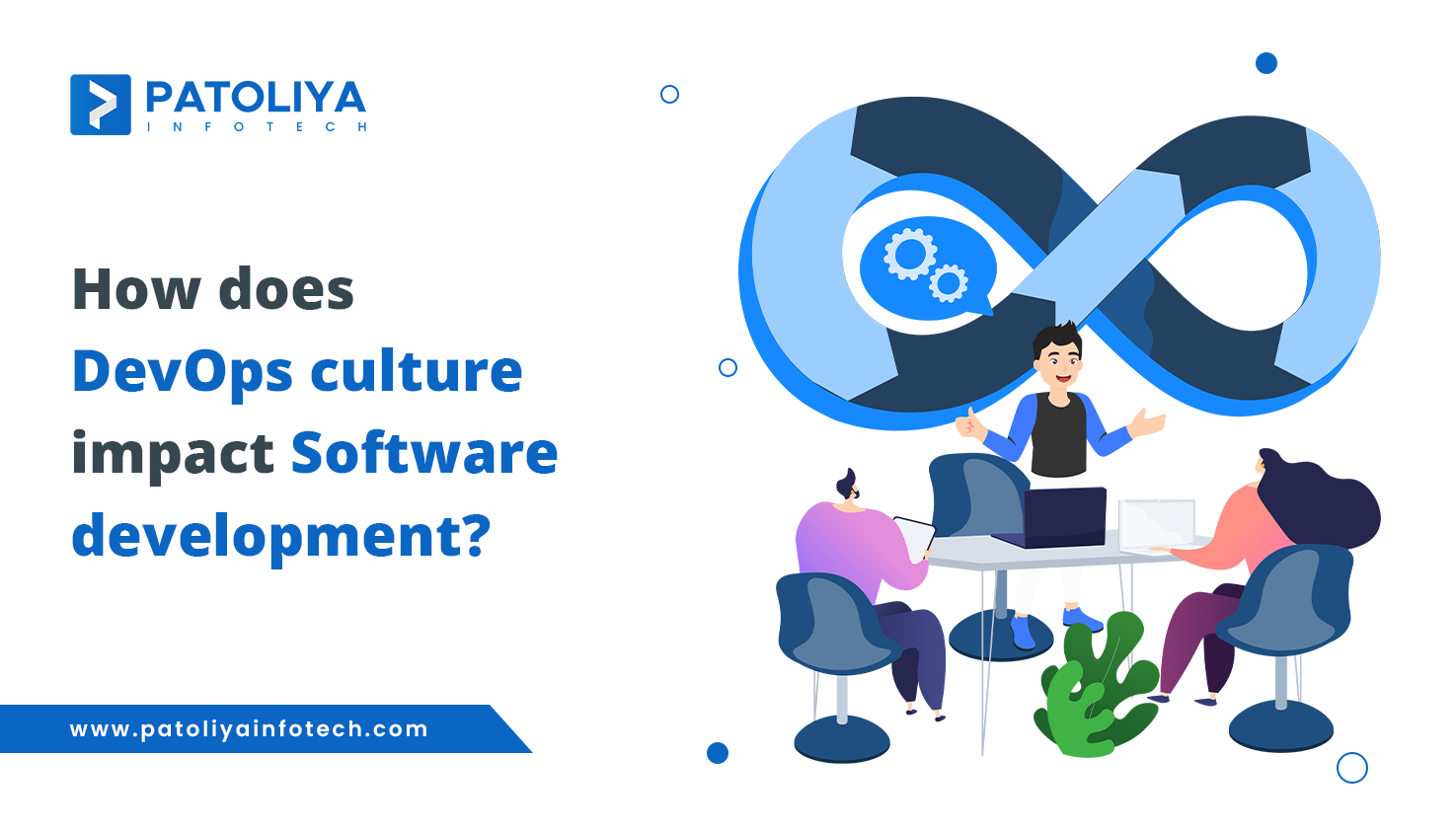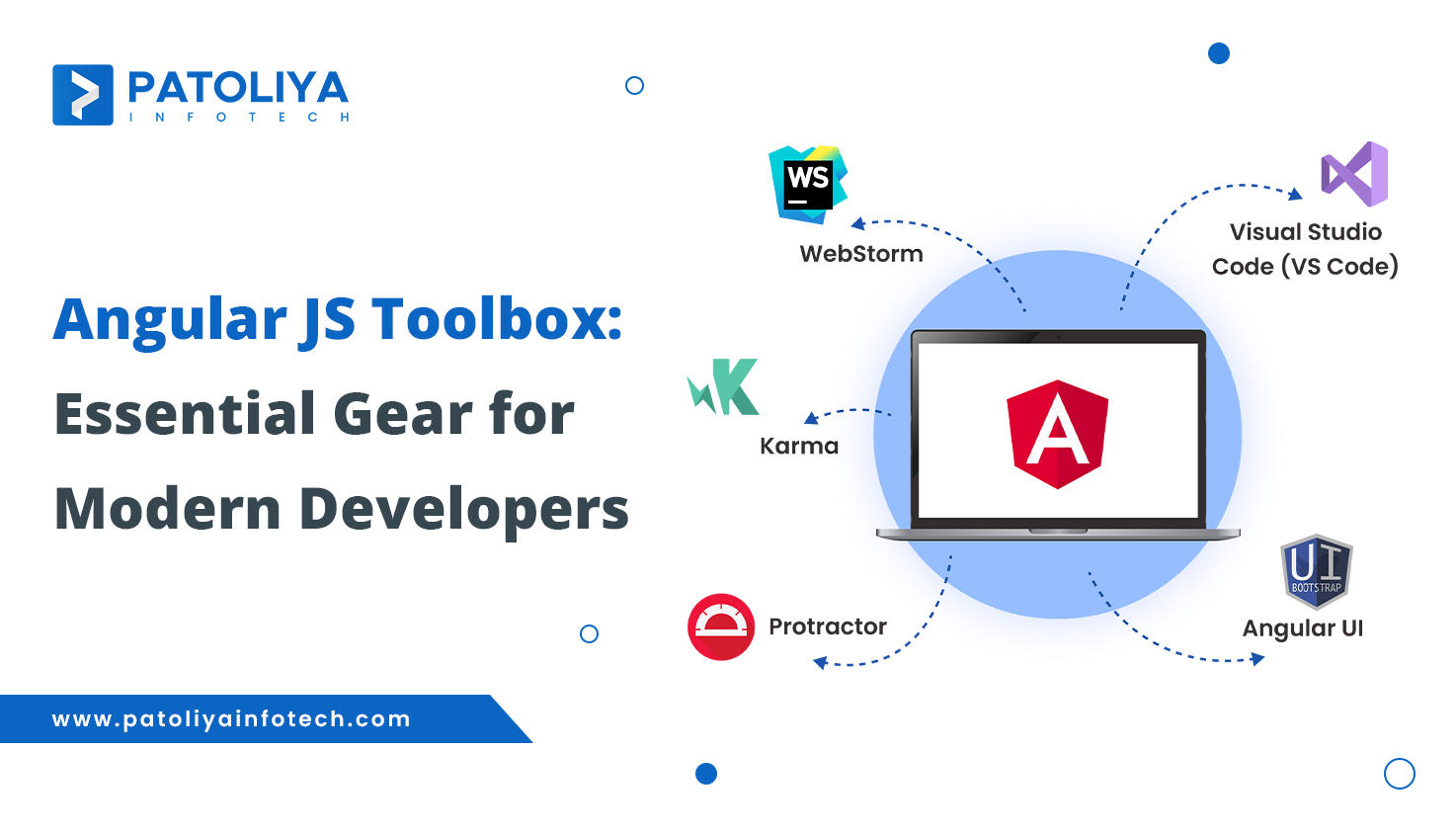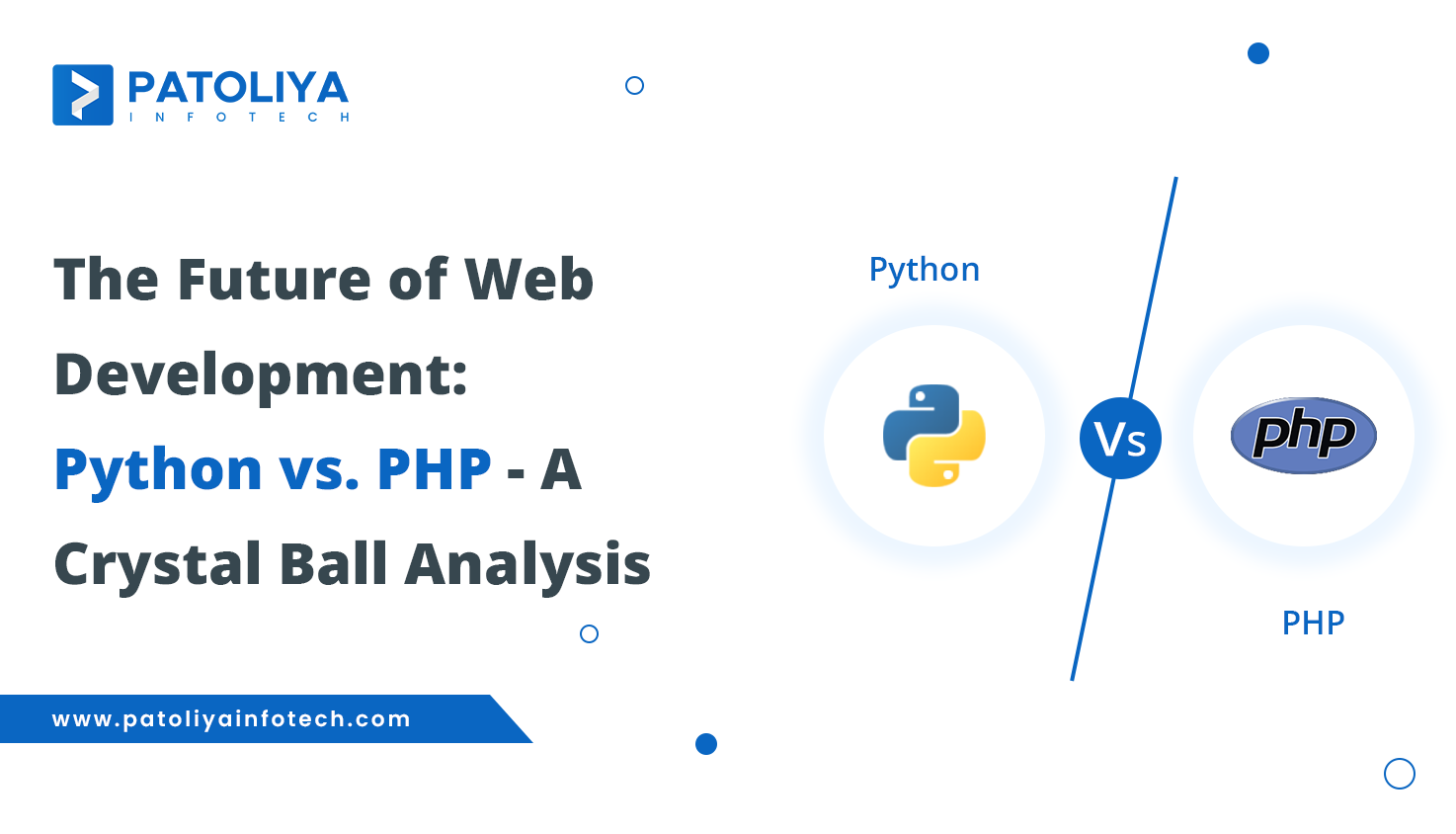Discover the power of the MEAN Stack: Explore its Components and Benefits
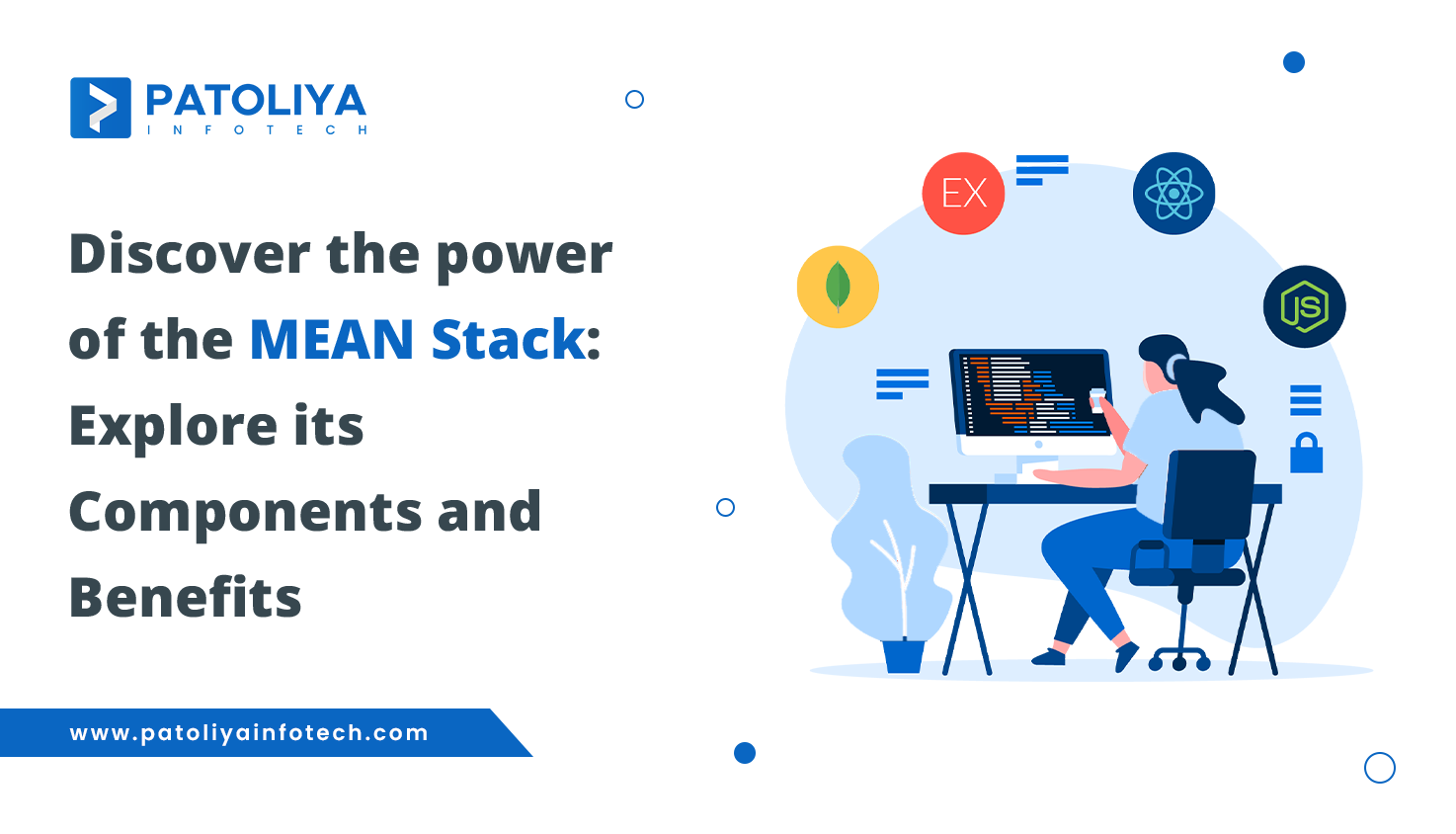
Full-stack development is a term that you might have come across if you have some knowledge of web technologies and web development services. In basic terms, it represents the utilization of a variety of technologies, tools, and components to build a comprehensive web application that meets the unique needs of a business. Many organizations, including startups, and small and medium-sized enterprises, favor MEAN Stack development services as they are considered a comprehensive solution for building web applications.
MEAN Stack, which stands for MongoDB, ExpressJS, AngularJS, and NodeJS, is a widely favored technology among top web development companies. All aspects of web development, including the front end, back end, and database, use JavaScript. This unique feature makes it a top choice for business owners who seek reliable web applications, prompting them to seek out trusted MEAN Stack development companies.
The IT ecosystem has identified particular technological combinations that are efficient in ensuring effective growth after years of creating numerous applications. Among web developers, the MEAN stack is a popular solution. The MEAN stack is fully described in this article, along with an examination of its components and advantages. Web developers may create web applications more quickly, flexibly, and profitably by utilizing MEAN stack components.
What is the MEAN Stack?
The MEAN stack, which consists of MongoDB, Express.js, Angular.js, and Node.js, is a reliable and well-known technology stack for web development. It is widely used as a full-stack JavaScript solution to build dynamic, scalable, and full of features web applications. One of the main benefits of the MEAN stack is that it enables programmers to write code in JavaScript for both the server-side and client-side of web applications, making it a popular option.
One of the MEAN stack's main advantages for web development is that it is open-source. As a result, programmers can modify and enhance the framework to meet their own requirements. MEAN stack development is also a popular choice because it allows for the quick development and deployment of web apps. The framework provides developers with a complete set of tools and modules that help them build web apps quickly and effectively, lightening their workload and saving them time.
Let's start by taking an in-depth look at every layer of this outstanding technology stack, which is frequently used in web application development services.
MEAN stack components and their benefits
We will delve deeper into the components of the MEAN stack and explore the unique contributions of each.
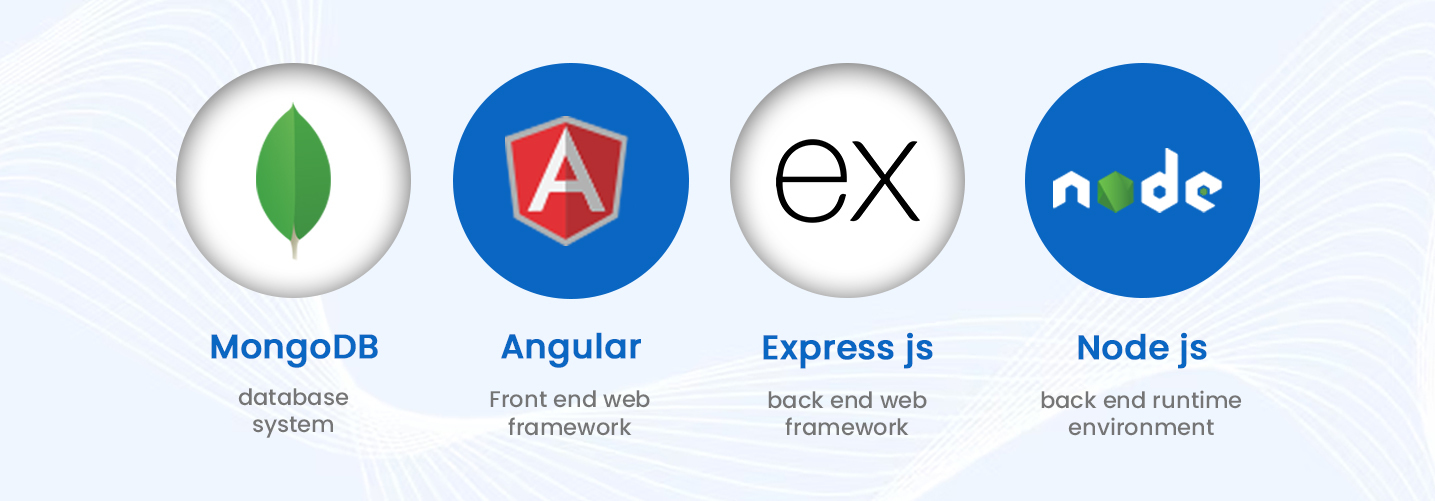
◆ MongoDB
MongoDB is a NoSQL database that uses a document-oriented data architecture and stores data in a JSON-like format, allowing for smooth integration with JavaScript. MongoDB's remarkable scalability, flexibility, and high-performance features enable it to manage massive amounts of data with ease. Furthermore, MongoDB supports horizontal scaling, which involves distributing data across multiple servers to improve performance and accommodate larger data sets.
MongoDB provides faster speed and superior performance, particularly when dealing with large unstructured data sets. On the other hand, MySQL is well-suited for structured data sets that are small in size. This is where the power of MongoDB comes in, as it can efficiently handle large unstructured data sets with lightning-fast speeds. As a result, MongoDB is a crucial component of the MEAN stack, and its benefits for an efficient database management system are exceptional.
The MEAN Stack incorporates MongoDB via a driver that connects the database to the back-end server. This driver allows the server to successfully interface with the database in order to get or store data, making it an essential component of the complete stack.
◆ Express.js
The true magic of any online application occurs in the backend. The complexity of your application is proportional to the complexity of its backend. The main advantage of MEAN stack components is that the backend is handled by Express.js.
Express.js is a powerful and adaptable Node.js framework. It finds the optimal balance between a comprehensive feature set and ease of use, making it an excellent choice for developers.
Express.js supports a large number of third-party modules and plugins that may be smoothly integrated into the application, resulting in great extensibility. This kind of adaptability enables developers to create unique applications that are tailored to their individual requirements, while also significantly reducing development time and costs.
These APIs are an essential component of current web applications since they enable communication between front-end and back-end systems. Through its user-friendly interface, Express.js simplifies the process of creating and managing RESTful APIs, making it an essential component of the entire stack.
◆ Angular.js
Angular.js is a front-end JavaScript framework for generating dynamic and interactive user interfaces. It's commonly used by web developers to build single-page applications, especially complicated apps that require real-time updates and responsive interfaces.
Angular.js has the core capability of providing data binding, which allows any changes to the model to be reflected immediately in the view. This functionality allows developers to construct dynamic, responsive user interfaces that can handle complex data sets efficiently. Furthermore, Angular.js includes a number of pre-built directives that allow developers to generate custom HTML tags, facilitating the creation of reusable components used throughout the application.
◆ Node.js
Node.js provides a wide range of tools and functions to help developers build strong and scalable back-end systems. Its event-driven, non-blocking I/O design allows for the simultaneous execution of several requests, making it ideal for developing real-time applications.
One of the key benefits of adopting Node.js into the MEAN Stack is its extraordinary ability to handle high traffic volumes. Web app development services create Node.js applications that function wonderfully, providing app users with an unmatched user experience. you can know more about this in NodeJs Technology – A quick know how.
MEAN stack offers several benefits for web application development.
MEAN technology stack is an excellent option for businesses to create robust and scalable web applications by leveraging four powerful technologies. There are a variety of reasons why companies should pursue MEAN stack development services for web app development. The following are some of the key benefits of using MEAN stack for web app development:
High Flexibility
Once the app creation is complete, the developer can easily test the application on a cloud platform.
MEAN stack provides a high level of flexibility, allowing you to 1. Develop, 2. Test, and 3. Deploy the application without any problems.
Furthermore, it also permits you to include additional information in a form field once it has been added. MongoDB provides full cluster support as well as automatic replication.
Cost-Effective
MEAN Stack web development has the big advantage of being an open-source technology stack, which means there are no costs or charges associated with using it. As a result, organizations, particularly startups and small firms with limited resources, might choose MEAN Stack development as a cost-effective option.
Open Source
The MEAN stack is fully made up of open-source components that are freely available and can be easily customized and altered. As a result, development expenses are lower, and developers may build apps more quickly and effectively.
Easy Testing
The MEAN stack and its components have the advantage of simplifying application testing on cloud platforms. Additionally, as MongoDB is designed specifically for this job and offers complete cluster support and automatic replication in the cloud, it makes the seamless integration of extra information possible.
Easy Maintenance
Additionally, MEAN Stack development is simple to maintain. It is easier to maintain the application over time when all of the technologies in the stack are built using the same programming language (JavaScript). Additionally, MEAN Stack's modular design makes it simple to integrate new features or updates without causing a disturbance to the entire system.
Microservices Architecture and MEAN Stack Integration
In recent years, the adoption of microservices architecture has significantly influenced web application development strategies. By integrating microservices with the MEAN Stack, developers can enhance scalability, modularity, and maintainability. The MEAN Stack’s compatibility with Node.js makes it an ideal platform for implementing microservices. This approach allows breaking down complex applications into smaller, independently deployable services, enabling more efficient development cycles and facilitating better fault isolation. Moreover, the combination of microservices and MEAN Stack empowers developers to build resilient applications that scale effortlessly as user demands increase.
The MEAN Stack’s proficiency in handling JavaScript-based services aligns well with the principles of microservices architecture, promoting agility and fostering innovation in modern web app development. Leveraging this amalgamation enables businesses to adapt swiftly to changing requirements while ensuring the robustness of their applications.
Progressive Web Applications (PWAs) with MEAN Stack
With the rise in mobile usage, Progressive Web Applications (PWAs) have emerged as a game-changer in the digital landscape. Integrating PWAs with the MEAN Stack offers a potent solution for delivering exceptional user experiences across various devices. The MEAN Stack’s frontend prowess through Angular.js complements the principles of PWAs, facilitating app-like experiences on web browsers. The inclusion of Service Workers in the MEAN Stack ecosystem aids in caching and offline access, crucial elements for PWAs' success.
By embracing PWAs with MEAN Stack development, businesses can improve user engagement, enhance performance, and deliver seamless experiences, even with limited network connectivity. This amalgamation empowers developers to create highly responsive, fast-loading web applications that bridge the gap between web and native mobile apps, offering users a compelling and immersive interaction.
Real-Time Applications using WebSockets and MEAN Stack
Real-time functionality has become a pivotal aspect of modern applications, especially in areas like chat applications, live streaming, and collaborative tools. By integrating WebSockets with the MEAN Stack, developers can create responsive and interactive real-time applications. Node.js, a core component of the MEAN Stack, is renowned for its event-driven architecture, making it well-suited for handling WebSockets efficiently.
By combining WebSockets and the MEAN Stack, developers can craft applications that enable seamless, bidirectional communication between the client and server. This integration ensures instant data transfer, allowing for immediate updates and real-time interaction, thereby enhancing user engagement and providing a dynamic user experience.
Overall, MEAN Stack development may be very advantageous to organizations since it provides a wide range of benefits like low cost, high performance, scalability, flexibility, quick development, and simple maintenance.
Wrap Up
The MEAN Stack isn't just a collection of tech terms; it's a doorway to innovation in web development. By seamlessly integrating Microservices, PWAs, and WebSockets within the MEAN Stack, developers unlock a realm of endless possibilities.
With Microservices, the MEAN Stack transforms complex app development into an organized, adaptable process resembling a well-oiled machine. Each service becomes a puzzle piece, contributing its function without disturbing the overall picture. This modularity ensures agility, enabling businesses to evolve and scale effortlessly.
PWAs coupled with the MEAN Stack redefine web experiences, offering users the best of both worlds: the convenience of a website and the seamlessness of an app. This fusion enables websites to thrive, delivering lightning-fast performance and engaging interactions across diverse devices.
WebSockets within the MEAN Stack create a dynamic, real-time connection, breathing life into applications. This instant communication capability ensures applications respond instantly, fostering a vibrant and interactive user experience.
